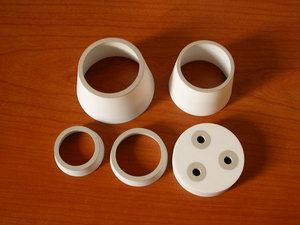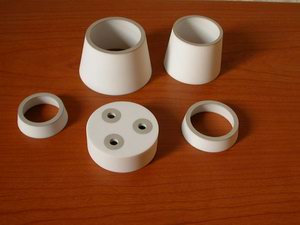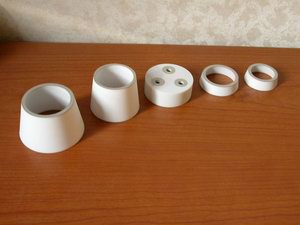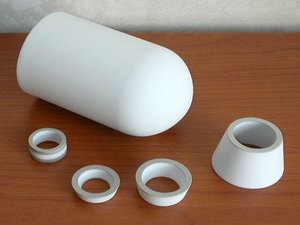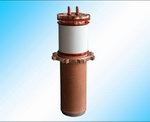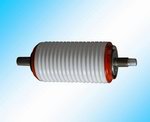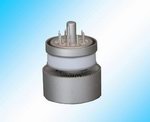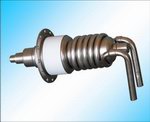

|
METALIZED CERAMICS
The ceramic made of 95% Al2O3 offers unique and amazingly powerful physical, thermal and electrical properties that have opened up a whole new world of development opportunities for manufacturers in a wide range of industries. In general terms, advanced ceramics exhibit exceptional properties that make them highly resistant to melting, bending, stretching, corrosion or wear. Their hardness, physical stability, extreme heat resistance, chemical inertness, biocompatibility, superior electrical properties and, not least, their suitability for use in mass produced products make them one of the most versatile groups of materials in the world.
|
|
||||
|
Typical products made by metallized ceramics The most important component to a quality ceramic-to-metal seal is the metal pattern fired into the ceramic. This coating becomes the interface that bonds the dissimilar materials together. Our process utilizes a special moly-manganese material that is applied to the ceramic directly or by a screen. This metalized coating is then bonded to the ceramic by high-temperature firing in a suitable atmosphere. We then utilize electrolytic nickel as our preferred deposition over the refractory metallization. This results in a system that is easily brazed with copper-silver, pure copper, and all alloys in between. Gold, copper, and tin plating are available upon request. |
The ceramic materials used offer many important properties, including, low dielectric loss, consistent dielectric constant, high mechanical strength and nil porosity. Our ability to metallise and braze to produce sub-assemblies, allows our customers to concentrate on their core competencies.
Applications:
Vacuum tube
Vacuum interrupter
Vacuum relay
Vacuum capacitor
Diodes
Thyristor
Gate turn-off (GTO) device
IGBT press pack housing
Substrate
Ceramic properties
|
Volume density:
|
≧ 3.61g/cm3
|
|
Helium Leak rate:
|
≦1x10-11 pa.m2/s
|
|
Yield strength:
|
≧290 Mpa
|
|
Dielectric constant, 1MHz 20℃/500℃:
|
9~10
|
|
Dissipation factor, 1MHz 20℃
|
≦2.5×10-4
|
|
Dissipation factor, 1MHz 500℃
|
30~40
|
|
Dielectric strength:
|
≧30 D.C KV/mm
|
|
Acid fastness, 1:9HCL:
|
≦5.0 mg/cm2
|
|
Alkali fastness 10%NaOH:
|
≦0.15 mg/cm2
|
|
Heating test: Heated to 800℃ for 30 minutes and naturally cooled to room temperature, repeating 10 times:
|
No crack
|





